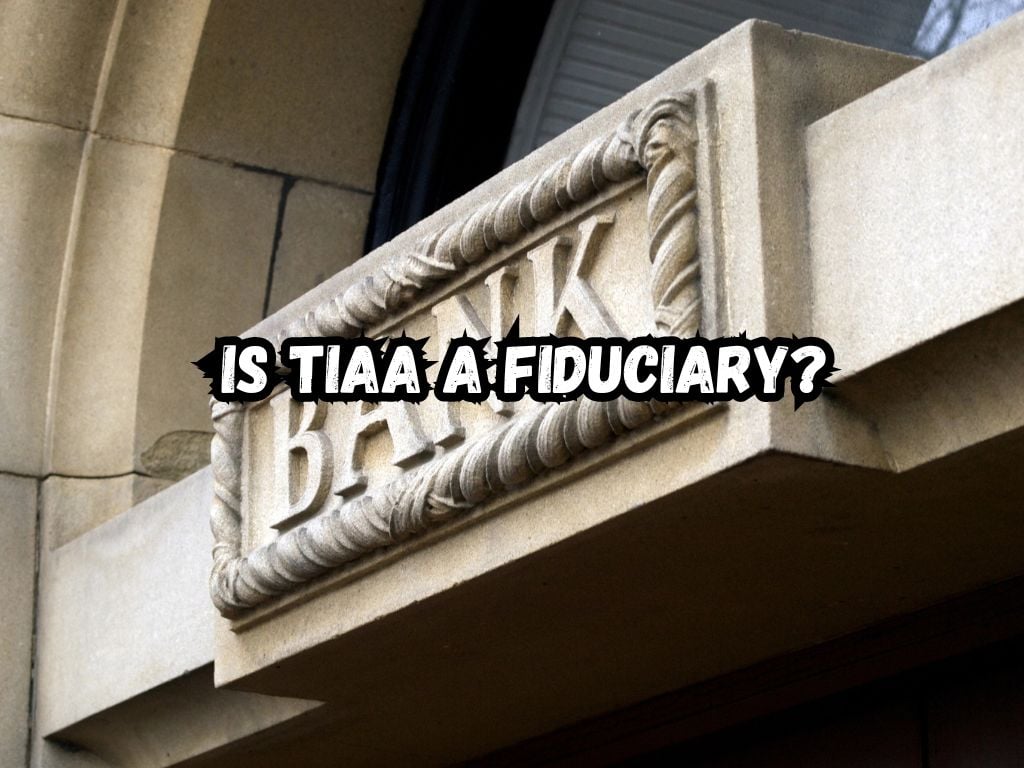In the world of finance, the concept of fiduciary duty holds significant importance. A fiduciary is an individual or an organization that is entrusted to act in the best interest of its clients or beneficiaries.
This responsibility of fiduciaries is crucial, especially when dealing with matters involving money and investments. So, Is TIAA a fiduciary?
In this article, we will delve into the role of fiduciary duty, understand TIAA’s position as a financial services provider, examine its fiduciary status, and explore TIAA’s approach to fulfilling its fiduciary responsibilities.
Understanding Fiduciary Duty
Fiduciary duty is a legal obligation that requires individuals or organizations to put the interests of their clients or beneficiaries above their own. This duty is characterized by principles such as loyalty, prudence, and diligence.
In the financial services industry, fiduciary duty plays a crucial role in establishing trust and ensuring that clients receive advice and services that are in their best interest.
Organizations that operate as fiduciaries are bound by law to act with utmost care, honesty, and loyalty, placing the client’s interests ahead of their own.

TIAA’s Role as a Financial Services Provider
TIAA, also known as the Teachers Insurance and Annuity Association, is a financial services organization that primarily focuses on retirement services for professionals working in the academic, research, medical, and cultural fields.
With over a century of experience, TIAA offers a wide range of services, including retirement planning, investment management, life insurance, and wealth management.
TIAA has established itself as a trusted partner for individuals seeking secure and sustainable financial solutions.
Is TIAA a Fiduciary? TIAA’s Fiduciary Status
To ascertain whether TIAA operates as a fiduciary, it is important to examine the legal frameworks governing financial services providers. The Employee Retirement Income Security Act (ERISA) is a federal law that sets standards and guidelines for retirement plans offered by employers.
ERISA defines fiduciary status and imposes fiduciary duties on individuals or organizations that meet certain criteria. TIAA, being a provider of retirement plans, is subject to ERISA regulations.
Under ERISA, TIAA is considered a fiduciary for the retirement plans it manages. This means that TIAA is legally bound to act in the best interest of plan participants and beneficiaries, exercising prudence, loyalty, and care.
TIAA’s fiduciary responsibilities include the selection and monitoring of investment options, providing accurate and transparent information, and ensuring fair treatment of plan participants.
TIAA’s Approach to Fiduciary Responsibilities
TIAA takes its fiduciary responsibilities seriously and has implemented robust practices to fulfill its obligations. TIAA maintains a comprehensive process for selecting and monitoring investment options in its retirement plans, ensuring that they meet strict criteria for diversification, risk management, and performance.
TIAA also provides tools and resources to educate plan participants about investment options and retirement planning, enabling them to make informed decisions.
In addition to investment management, TIAA emphasizes the importance of transparency and clear communication. TIAA strives to provide accurate and comprehensive information to plan participants, enabling them to understand the features, costs, and potential risks associated with their retirement plans.
TIAA also encourages participants to seek independent advice and conduct due diligence when making retirement planning decisions.
TIAA’s Regulatory Oversight and Compliance
As a financial services provider, TIAA is subject to regulatory oversight by various bodies, ensuring that it adheres to applicable laws and regulations. The U.S. Securities and Exchange Commission (SEC) regulates certain aspects of TIAA’s operations, such as investment advisory services and securities offerings.
TIAA, being a provider of retirement plans, is also subject to oversight by the Department of Labor (DOL), ensuring compliance with ERISA regulations.
TIAA’s compliance with regulatory requirements is of utmost importance. The company maintains internal mechanisms, including policies, procedures, and internal controls, to ensure adherence to regulatory standards.
TIAA also works closely with external auditors and legal counsel to review its operations and implement any necessary changes to maintain compliance.

Frequently Asked Questions
What does it mean for a company to be a fiduciary?
Being a fiduciary means that the company is legally obligated to act in the best interest of its clients or beneficiaries, putting their interests ahead of its own.
Does TIAA have a fiduciary duty for all its products and services?
TIAA’s fiduciary duty primarily applies to the retirement plans it manages under the ERISA regulations. However, TIAA also operates with a client-centric approach for its other products and services, ensuring that they align with the client’s best interest.
What are the benefits of working with a fiduciary like TIAA?
Working with a fiduciary like TIAA offers the assurance that the financial services provider is legally bound to act in the client’s best interest, providing services and advice that are transparent, trustworthy, and aligned with the client’s long-term goals.
How can clients verify TIAA’s fiduciary status?
Clients can verify TIAA’s fiduciary status by reviewing official documents and disclosures, such as the plan documents provided for their retirement plans. Additionally, clients can refer to regulatory websites or consult legal professionals for further clarification.
Conclusion
TIAA, as a financial services provider, operates as a fiduciary for the retirement plans it manages under the ERISA regulations. It has a legal obligation to act in the best interest of its plan participants and beneficiaries.
TIAA demonstrates its dedication to fiduciary responsibilities through its robust practices, transparent communication, and compliance with regulatory standards. Clients can have confidence in TIAA’s commitment to providing financial services that are aligned with their long-term goals.
In today’s complex financial landscape, the fiduciary duty assumed by organizations like TIAA plays a crucial role in safeguarding the interests of clients.
Clients can rely on TIAA’s fiduciary status to ensure that their investments and retirement plans are managed with care, prudence, and loyalty. As a trusted partner, TIAA strives to empower individuals to make informed decisions and secure a financially stable future.


 Tags:
Tags:










